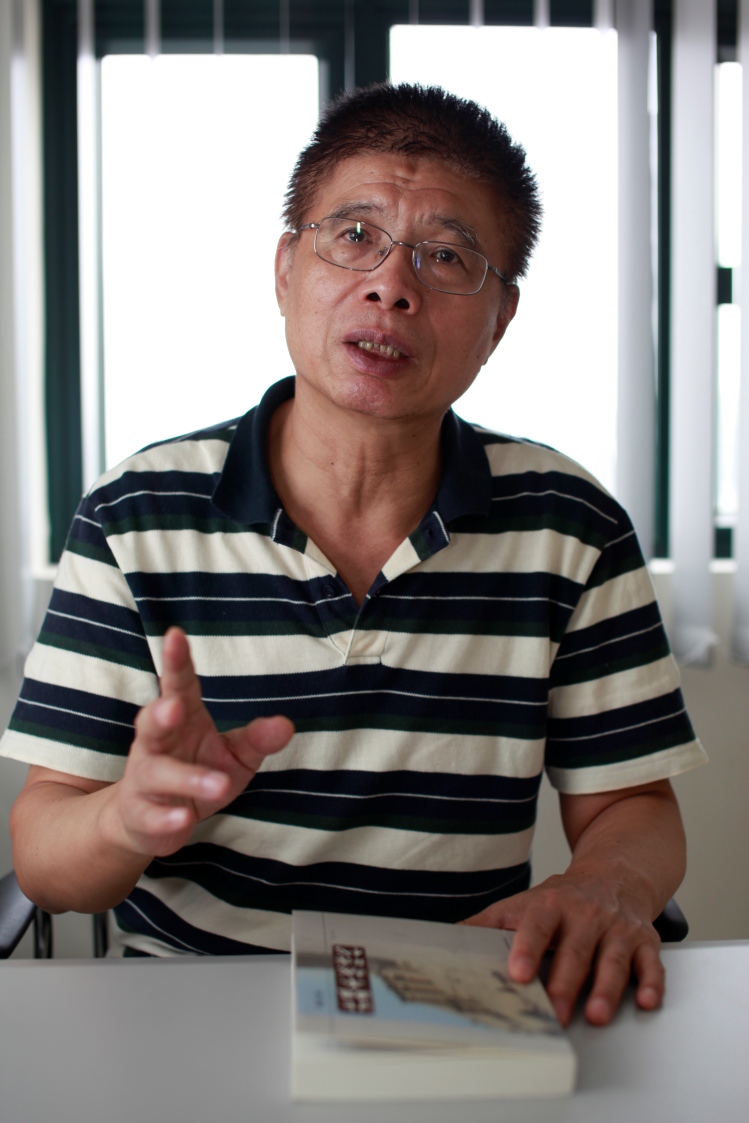In this new academic year, some new professors joined UM, and one of them is Prof. Li Ping, an expert on the history of the Northern Wei dynasty. How did Prof. Li cross paths with history?
Reading History Books under the Covers
Li Ping was born in a small town in Jiangsu province, China, and later moved to Beijing with his parents. Even as a child, Li Ping showed a particular interest in the ancient Chinese language, which later became a useful tool in his studies of history. When he was in middle school, the Cultural Revolution broke out, and he went to Urumqi in Xinjiang, where he worked as a construction worker for eight years. The strenuous labour was nothing compared to the lack of “food for the mind”. One day, a fellow worker offered: “I can lend you one book every week, as long as you finish it and return to me within the week.” Thirsty for knowledge, Li Ping eagerly agreed.
The first book the worker lent Li Ping was Records of the Grand Historian by Sima Qian. During those years, reading was something one could only dream of, not to mention the unthinkable consequences of being caught. So every night Li Ping read secretly under the covers by a dim flashlight. Page by page, he finished many classics such as Records of the Grand Historian, History of the Former Han Dynasty, History of the Latter Han Dynasty, History of the Three Kingdoms, History of the Jin Dynasty, and History of the Wei Dynasty etc. “I didn’t know the background of the fellow worker, and I didn’t know why he lent me the books,” recalled Li Ping. “But it didn’t matter, as long as I got to read. This secret bed-time reading ritual lasted over two years, and gradually I developed a strong interest in the ancient history of China.”
Combine History Studies with Archaeology
In 1972, Li Ping was sent to the Turpan Basin, Xinjiang, to receive a one-year teaching training. It happened that not far from Turpan there was the well-preserved, over-2000-year-old Ancient City of Jiaohe. “Back in the 1970s, the ancient city was in its original state, completely different from what it looks like today,” said Li Ping, “as I stood there looking at the deserted, decaying ancient city, I could see clearly in my mind’s eye its past prosperity, you know, the constant stream of horses and carriages on the streets, how people went about their everyday life.” Li Ping believes history studies must be combined with archaeology. Over the past decade, he has visited the ruins of almost every ancient city in China, and has become one of the few experts in the field.
Focus On the History of the Northern Wei Dynasty
In 1978, after the Cultural Revolution was over, Chinese universities resumed postgraduate recruitment. Without a university degree, Li Ping was accepted by Shanxi University. After receiving his master’s degree in the ancient history of China, he went on to pursue a PhD degree in history at Peking University. After graduation, he successively served as head of the Research Office at Peking University Library, director and PhD supervisor of the Institute of Chinese History at the Chinese Academy of Social Sciences, and professor of history at Zhejiang University and the South China Normal University.
Over the past decade, Li Ping has focused on the history of the Northern Wei, which many historians consider a tough nut to crack. He is determined because he believes the Northern Wei has left behind a wealth of cultural heritage. After many years of field research, he wrote a book entitled The Pingcheng Era in the Northern Wei Dynasty, filling the gap in this historical period.
One history book changed Li Ping’s life, and we hope his encounter with UM, which led him to Macao, a city with a rich historical heritage, can stimulate more inspirations for his future studies.

